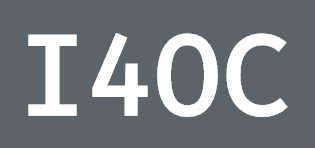open citations
See the following -
It’s Time for Open Citations
 Today, Mozilla is announcing support for the Initiative for Open Citations (I4OC), an effort to make citation data from scholarly publications open and freely accessible. We’re proud to stand alongside the Wikimedia Foundation, the Public Library of Science and a network of other like-minded institutions, publishers and researchers who believe knowledge should be free from restrictions. We want to create a global, public web of citation data — one that empowers teaching, learning, innovation and progress. Read More »
Today, Mozilla is announcing support for the Initiative for Open Citations (I4OC), an effort to make citation data from scholarly publications open and freely accessible. We’re proud to stand alongside the Wikimedia Foundation, the Public Library of Science and a network of other like-minded institutions, publishers and researchers who believe knowledge should be free from restrictions. We want to create a global, public web of citation data — one that empowers teaching, learning, innovation and progress. Read More »
- Login to post comments
Why openly available abstracts are important - overview of the current state of affairs
 The value of open and interoperable metadata of scientific articles is increasingly being recognized, as demonstrated by the work of organizations such as Crossref, DataCite, and OpenCitations and by initiatives such as Metadata 2020 and the Initiative for Open Citations. At the same time, scientific articles are increasingly being made openly accessible, stimulated for instance by Plan S, AmeliCA, and recent developments in the US, and also by the need for open access to coronavirus literature. In this post, we focus on a key issue at the interface of these two developments: The open availability of abstracts of scientific articles. Abstracts provide a summary of an article and are part of an article's metadata. We first discuss the many ways in which abstracts can be used and we then explore the availability of abstracts. The open availability of abstracts is surprisingly limited. This creates important obstacles to scientific literature search, bibliometric analysis, and automatic knowledge extraction.
The value of open and interoperable metadata of scientific articles is increasingly being recognized, as demonstrated by the work of organizations such as Crossref, DataCite, and OpenCitations and by initiatives such as Metadata 2020 and the Initiative for Open Citations. At the same time, scientific articles are increasingly being made openly accessible, stimulated for instance by Plan S, AmeliCA, and recent developments in the US, and also by the need for open access to coronavirus literature. In this post, we focus on a key issue at the interface of these two developments: The open availability of abstracts of scientific articles. Abstracts provide a summary of an article and are part of an article's metadata. We first discuss the many ways in which abstracts can be used and we then explore the availability of abstracts. The open availability of abstracts is surprisingly limited. This creates important obstacles to scientific literature search, bibliometric analysis, and automatic knowledge extraction.
- Login to post comments